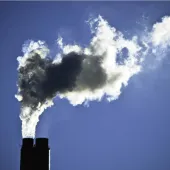Heidelberg Materials trials enforced carbonation at scale
Heidelberg Materials has launched a major industrial trial of its ReConcrete technology in Poland, advancing a novel approach to carbon reduction that could have global implications for concrete production.
The new pilot facility at the company’s Górażdże cement plant uses enforced carbonation to permanently bind carbon dioxide within recycled concrete paste (RCP), allowing the material to replace energy-intensive clinker in composite cements.
This marks the first industrial-scale deployment of Heidelberg’s patented process, combining circularity with decarbonisation by recycling old concrete and accelerating its natural ability to absorb CO₂.
Recovered from a specialist concrete recycling plant in Katowice, the RCP is treated using exhaust gases from the cement kiln in Górażdże. The CO₂ chemically binds within the fine concrete fraction, transforming it into a viable supplementary cementitious material (SCM).
The company estimates that each tonne of RCP processed through ReConcrete can reduce carbon emissions by up to 1,000 kg — including 100 to 150 kg of CO₂ permanently bound through enforced carbonation and 750 to 850 kg of emissions avoided by displacing clinker.
“Scaling ReConcrete is an important step for us in unlocking new ways to reduce the carbon footprint of our products,” said Dr Katharina Beumelburg, chief sustainability and new technologies officer. “We can now combine circularity and resource efficiency with decarbonisation.”
Jon Morrish, member of the managing board for Europe, added: “Our accomplishment in Poland will serve as a blueprint for similar projects across the Group as we continue to expand our circular and low-carbon product offering for customers.”
The Katowice facility, which opened in 2024, uses a proprietary crushing process to extract high-quality sand, gravel and RCP from old concrete. The current trial in Górażdże is being carried out under industrial conditions and forms part of the EU- and Swiss-backed “Carbon4Minerals” R&D project.
For the UK concrete sector, the process offers a glimpse of what could soon be commercially viable — a means of treating concrete not just as a structural material, but as a carbon sink that actively helps decarbonise construction.
, decarbonisation, , , clinker replacement, recycled concrete, Heidelberg Materials, innovation







